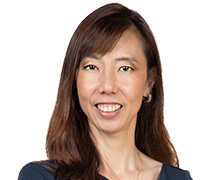The Key to Creating an Inclusive Future
As the executive champion of Walmart’s partnerships with Girls Who Code, the Anita Borg Institute, and Path Forward, I am particularly passionate about encouraging more girls and women to consider a career in technology. The field of artificial intelligence (AI) continues to grow at a time when conversations around diversity are emerging. We’re still at an early enough stage in AI’s lifecycle that it’s not too late to begin talks around inclusion as part of the evolutionary process.
There are so many amazing opportunities for women to get into this burgeoning field, to create exciting, new, and disruptive AI applications, and have an impact on the world at large—in industries, such as healthcare, manufacturing, energy, financial services, agriculture, and retail.
Including women in the development of AI is not only important for business, but important for society. As technology becomes more ubiquitous, it is important that the people who are creating these technologies are representative of those who are using it.
The gender gap starts early in STEM subjects. In high school, for instance, girls account for more than half of all Advanced Placement test-takers, but boys outnumber girls in computer science subject exams by a margin of four to one. At the university level, this imbalance continues; women only receive 18 percent of all computer science degrees and about 19 percent of engineering degrees. In the workforce, women occupy just 24 percent of the computing jobs.
In order to ensure that AI is working toward the greater good for everyone, the female workforce developing AI applications needs to dramatically increase that 13.5 percent figure to something closer to 50 percent. There are ethical challenges ahead for AI developers, and luckily, we’re already asking the right questions.
I’m proud to work in an environment that fosters equality, provides a voice for everyone, and encourages participation in this growing field. The key to creating an inclusive future, both in work and in life, is achieving diversity across careers in technology, so that we have a representative voice to shape the world of business.







